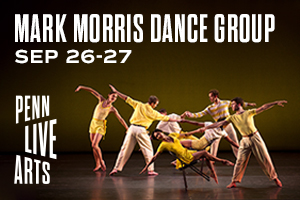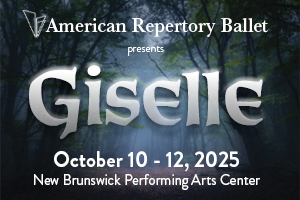
A Fight to Success: Interview with Chanel Holland, founder of Chocolate Ballerina Co.
by Mohan Bell
Langston Hughes once asked, “What happens to a dream deferred?” Chanel Holland considered the same question when starting her dance company, Chocolate Ballerina Co. She is currently a program coordinator with BalletX, where she works to diversify the audience who attends ballet, while simultaneously manifesting her dream of helping other dancers who have found their own dreams deferred. Ahead of her upcoming July 27 show, “A Fight to Success,” I had a conversation with Holland about the development of her company and its continued evolution.
Mohan Bell: Why did you start Chocolate Ballerina Co.?
Chanel Holland: I started the company because I was very angry with myself in terms of where I was in my career, and where a lot of people who grew up in the arts in my community ended up in their dance careers. I wanted to give them an outlet, to let them know that even though things may not have gone the way they expected when they started out as a young artist, they can still aspire to a life in the performing arts. In the community where I grew up in Harlem—and also where I teach now in Philadelphia—there aren’t a lot of opportunities to perform ballet or even much knowledge of ballet. Chocolate Ballerina is providing that visual to aspiring young artists to say, “Hey! They look like me, they talk like me, they act like me, and they are still able to dance ballet, a medium that people put in a box based on certain stereotypes.”
MB: Why do you think it is important for them to be exposed to ballet?
CH: Children and young artists don’t always get to choose what they are exposed to, whether positive or negative. A lot of my students have seen and experienced things a child should not. But that’s their environment. If ballet is placed in their environment, this helps them to be well-rounded.
MB: What has been the journey to Chocolate Ballerina?
CH: I was fortunate enough that I was exposed to ballet at a young age. I went to Complexions; I went to the Ailey School for years; I did a lot of background dancing with musical and dance tours. I asked myself, “If I have all this performing arts knowledge and I keep it to myself, where does that leave my legacy? What am I doing with it?” I had doubts. I wrote Chocolate Ballerina as a thesis and business proposal when I was an undergrad at Temple University in 2012. I just didn’t have the courage to do it. My professor, Jillian Harris, encouraged me then that I had this talent—I had this gift. She pushed me so hard to do it and I just never did it. But when I noticed a lot of dance schools in my community closing after years of being open, I said, “Something has to be done. I have to do something about this,” and I started Chocolate Ballerina. Although we are an adult company, we have several outreach programs that go into recreation centers throughout the city, to try to revitalize those dance programs. For instance, our first year was with Simons Recreation Center in West Oak Lane. Simons Recreation Center had one of the best dance programs in the city in the 80’s. We began to teach subsidized classes there for as low as $20/$25 dollars a week, and they got professional training: ballet, jazz, hip hop. That’s what it’s about. I tell people all the time, if I was looking for a paycheck out of this, I wouldn’t be doing it.
MB: What has the process been like from the idea to the show now?
CH: The process has been to bring these dance artists together and help them feel more confident: get them get back into technique classes, get them get back into their mold. Some of them have not danced since high school. Some of them had a baby at 23. A lot of people cannot afford $20 open classes at the local school. So I hope that I have the tools to whip them back into shape and to build their confidence to look amazing and feel amazing and inspire someone through that amazingness. And they don’t have to pay me anything. I’m offering this for free. We also work with scholars and dancers with NYC Ballet who teach classes with my company. And now these artists who lacked confidence are ready to get back out there onstage again. We are ready to inspire others who want to do this.
MB: So you basically put a call out to people who want to dance but have not been dancing for a long time, and you train them to get back into shape.
CH: I started with a casting call and audition, which did not have a huge outcome. I find that when you haven’t danced in a while, you feel like, “Wow, I don’t think I am ready to audition.” I knew it wasn’t that people did not like what I had to offer. It was a question of whether they had enough confidence to walk into the room. So I went on Instagram and entered "#phillydancer” and recruited my dancers from there. A lot of people feel comfortable vibing out on Instagram; you can see someone’s passion when they are literally, honestly vibing out. That’s where I found my first male premier dancer (Kevin Harris), at #phillydancer. I reached out to him and said, “I think you are amazing. What you are doing here needs to be seen on a larger platform. Would you mind coming in and taking a free class with me?” And he did and he loved it and stayed with me. Seventy percent of my dancers I found on Instagram.
MB: What are some of the challenges that you are finding with starting this new company?
CH: A lot of my issues are because everyone is an adult and everybody is adulting. They work, they have kids, and some are married. It’s difficult to find a time when everybody can get together. BalletX dancers train together from 9am to 5pm with an hour of lunch. [BalletX dancers] are also getting paid to come to rehearsals. That is definitely the hardest thing.
MB: You are merging hip-hop and ballet?
CH: We are doing a rendition of Swan Lake [Pas De Quatre] but to urban pop culture music. We have this piece that’s a ballet but to the music of Meek Mill. It’s like, “Wooo! I gotta see this!”
MB: You call this show A Fight to Success. Why that title?
CH: Because of the journey that we have been on as a company. We’ve been through a lot in terms of [where to meet for rehearsals]; we’ve had several people say they are going to donate to us and then they never came through; me fighting with my own feelings of whether I should keep it open, whether I should keep it going; and my dancers fighting with their own demons and not being able to believe in themselves. It’s a fight to success and we have made it here. People are usually interested in the outcome of the struggle. I am here to expose the struggle.
A Fight to Success: Premier Prima, Chocolate Ballerina Co., The Performance Garage, July 27, www.performancegarage.org/chocolateballerinaco-premierprima.
By Mohan Bell
July 26, 2018









